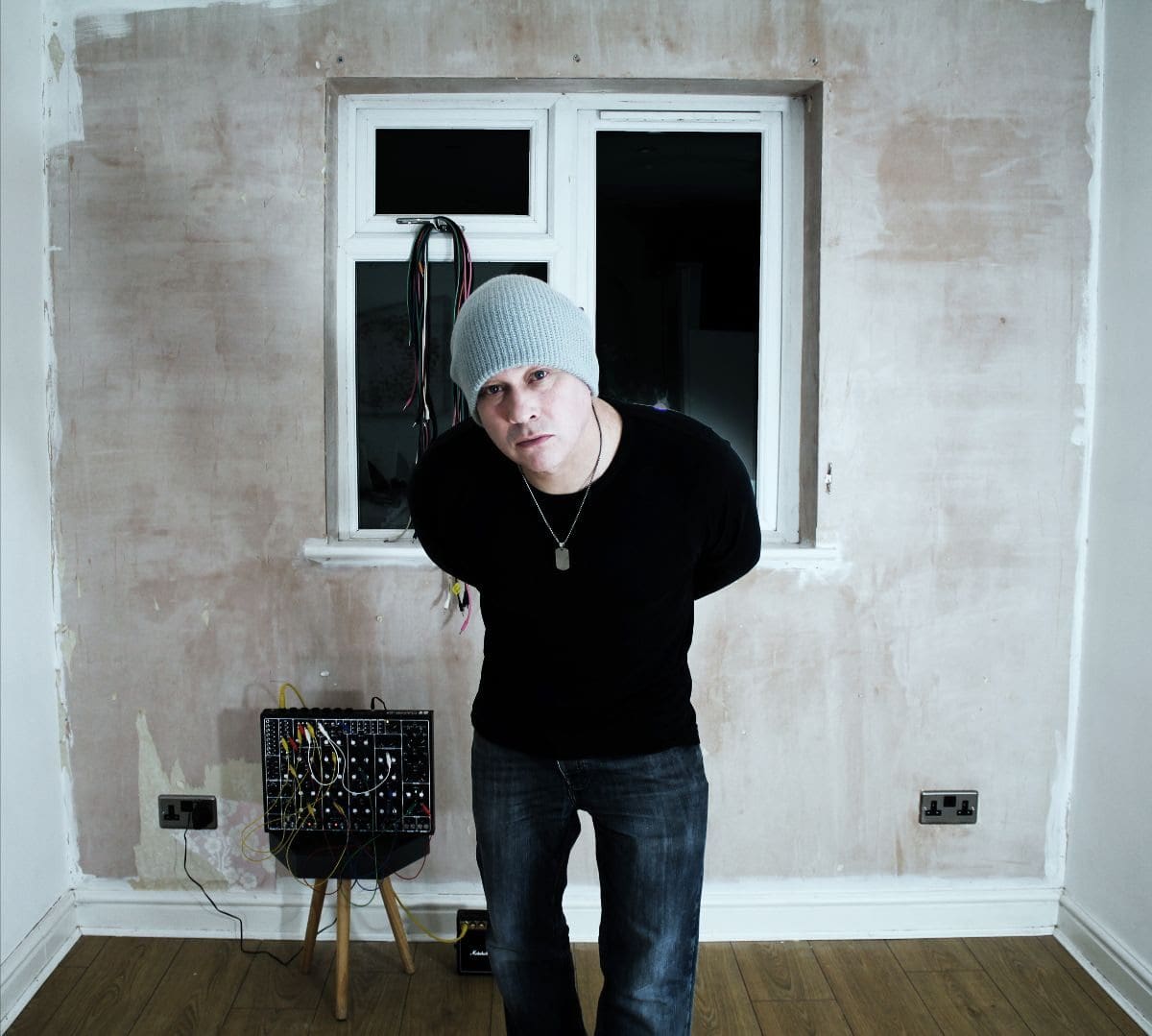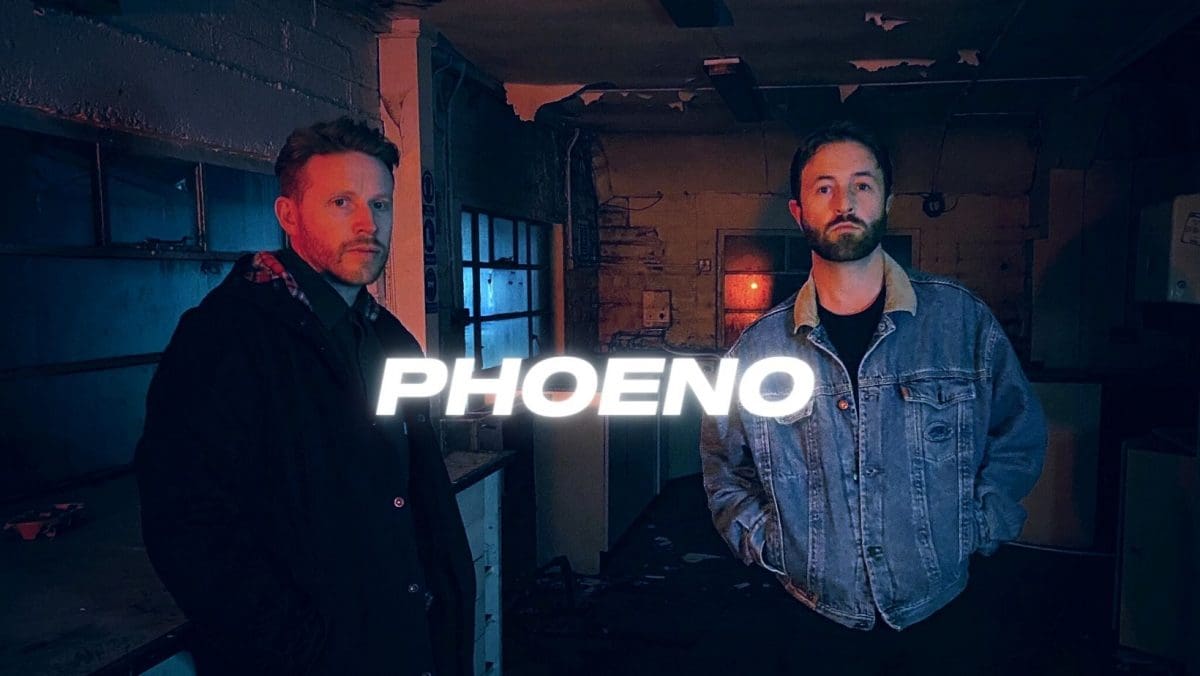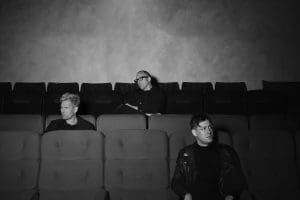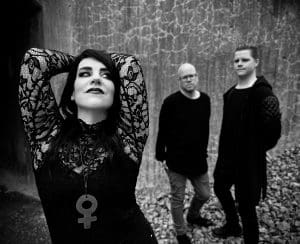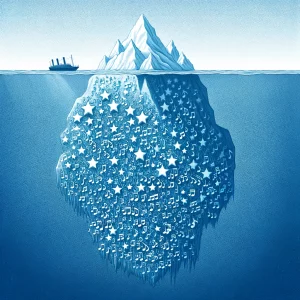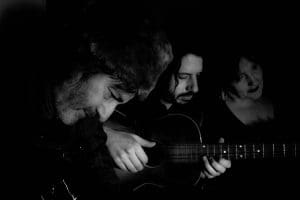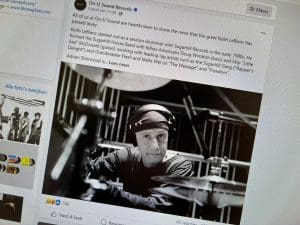‘Click’ Interview with Iris: ‘Chasing Trends Doesn’t Work Well For Us’
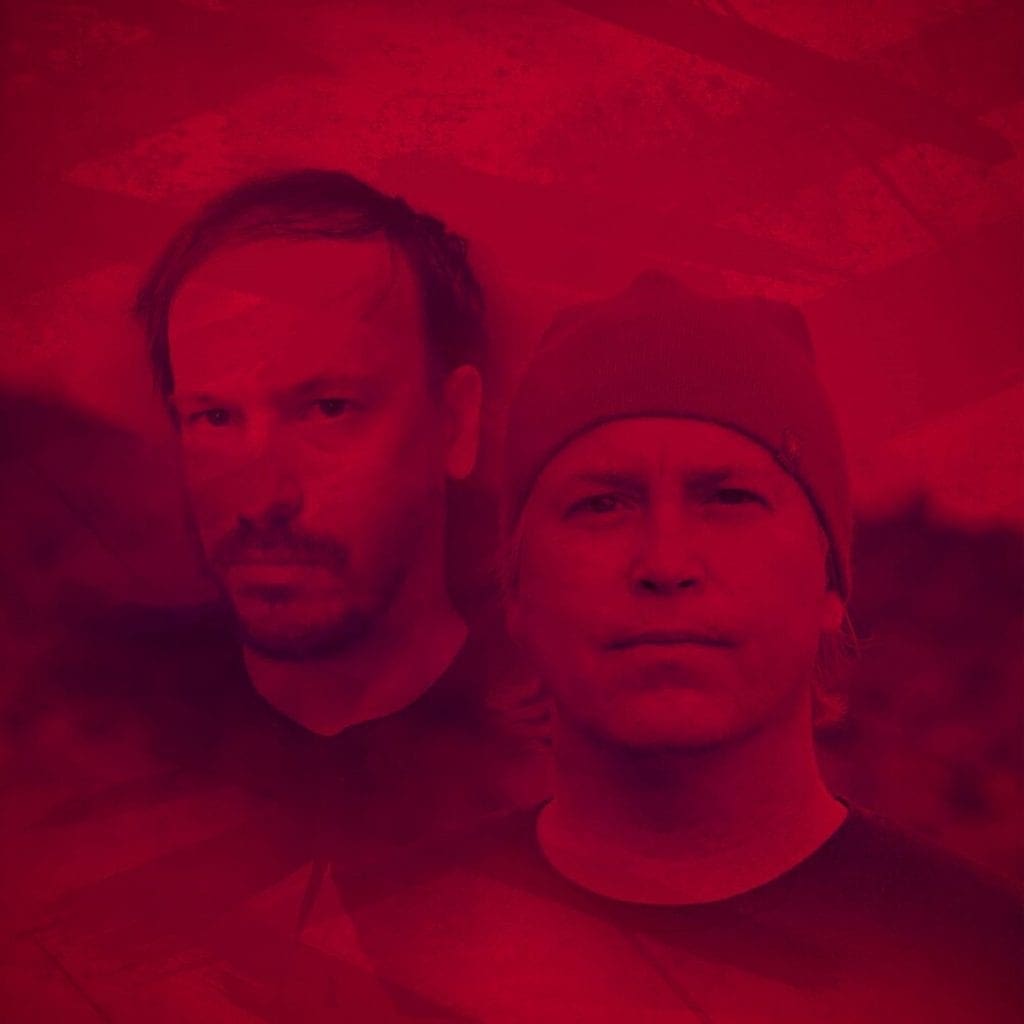

Twenty years after their debut album “Disconnect” released by the now defunct A Different Drum, Reagan Jones and Andrew Sega unleashed their sixth album simply entitled “Six”. It also is the American’s duo second full length album released by Dependent. Fans and other electro-pop lovers had to wait for five years to welcome “Six”, which appears to be the most accomplished work of the band today. “Six” has the magic to now make you dance and then make you cry. It’s a mix between bombast and refinement with on top of the production the captivating vocals of Reagan Jones. I got in touch with both members to get more info about the new Iris opus.
(Courtesy by Inferno Sound Diaries)
Q: I noticed your new album “Six” has been released twenty years after the debut full length “Disconnect”. How do you look back at this debut work and how did you see Iris evolving throughout the years?
Reagan: Our evolution is maybe more about what it hasn’t been. We don’t divert a great deal from our natural tendencies, so the evolution has been glued more to the desire to improve what we do, without heading in directions that don’t make sense for the band. Electronic music can be very trendy, very seductive as trends change. In a way, it makes me want to write folks songs or something where there’s a consistent expectation. I’ve gotten more confident in some ways, while at the same time, maybe more provincial and closed off as a writer. Chasing trends doesn’t work well for us, whereas doing what’s natural, that seems the right course. Andrew is always able to bring newer elements and production values to each album, so he gives me coverage in that way, but in the end we have this thing we do and just try to make it better with each album..
Q: You’re not the kind of formation releasing a new album at regular basis so I can imagine you need these breaks to focus on other things –and maybe not necessary related to music. Tell us a bit more about these ‘breaks’ and how do you finally start back writing new music?
Reagan: Up to now, the breaks haven’t been orchestrated for time away, so much as they’ve been a natural component to the process. Oftentimes I’d start writing as soon as a new album came out. That was sometimes the most enjoyable, because you can get back to the creative process, which is always my favorite part of the process; more so than live shows for example.
In retrospect, had I forcibly removed myself from writing each time, maybe a year, I probably would have completed new songs a lot quicker, since you get that inspiration refresh. It’s amazing how much easier and inspired things are after a break, but I was addicted to the creative process and would keep on writing. By the time I started sending ideas to Andrew, and certainly by the time he was sending ideas back, I would begin to get fatigued. So we’d end up with multiple parts of tracks which would go unfinished for a while. We’d end up with all these pieces of ‘what could be’ tracks, then we’d have to find the discipline to really get after it and finish them into full songs for an album. Strategically, not the best way to go about it, but I usually work impulsively, according to my emotions, and this is partly to blame for the duration.
Q: “Six” is the sixth full length album in the band’s history. Didn’t you feel inspired to find another title or has this “Six” a particular meaning?
Andrew: Well, it needed to be one word (to keep with the Iris album naming theme lol). And we tossed around a number of other ideas, but we kept coming back to “Six” for some reason –it wasn’t laziness, it just felt right.
Q: What I like in your sound and especially since the previous album “Radiant”, is a kind of proper sound-DNA! I don’t want to compare your sound to Mesh, but just as your label mates it’s possible to immediately recognize the Iris-sound formula. So what makes this sound that ‘particular’ and especially different from other electro-pop bands?
Andrew: I think our sound is a bit unusual in that we focus more on the ambience, orchestrations, and layering than trying to make the hardest beats or best synth basslines. I think it’s good to have a signature sound, even if you didn’t strictly intend it. We didn’t have a master plan going in, Iris is instead the sum of our personal influences, and the result of things that unconsciously happen at the studio. Part of it is my approach to chords and harmonies, but that’s a long answer for another interview. I also think a big piece is Reagan’s unmistakable vocals –if you were to listen to just the instrumentals, I’m not sure the signature sound would entirely be there.
Q: “Six” is probably my favorite Iris-album, but it for sure is the album reflecting the highest level of maturity and writing skills. Tell us a bit more the writing and items such as –sound creation, -arrangements and the production of the vocals?
Andrew: I worked on the record at first in my old apartment in NYC, and then later I bought a house and put a brand new studio downstairs. I think this process allowed me to reflect on the sound a bit and try to get the mixes as tight as I possibly could. We don’t work with outside producers, so everything on the album comes directly from us, for better or worse. Reagan submits demos, and I try to give them new life with production while keeping the spirit of the original.
From a technology perspective, everything is done digitally except guitars and vocals, and I use a lot of plugins from Native Instruments, Arturia, and SoundToys. I also sprinkle guitars in where appropriate, sometimes they’re a bass thickener, other times a more melodic element.
Q: “Six” is available in different formats and edits. Do you as artists have a favorite format and what’s your perception of the music business considering items such as image, social media, streaming?
Andrew: The music business is still alive, somehow. We have done really well recently with high-end limited editions, such as vinyl, art books, and similar. Fans want to contribute beyond just purchasing an album download or CD, and so you need to give them the opportunity to express their support financially. We’ve never been a very image-focused band, and so perhaps that makes us the odd ones out in a darker scene where everyone is so meticulous about their visual presentation. Social media is important, although what I like most about it is hearing directly from fans –it creates a community of direct feedback that didn’t exist 10-15 years ago. We’ve met quite a few people through the band that have become true friends, and that is priceless.
Since you’re here …
… we have a small favour to ask. More people are reading Side-Line Magazine than ever but advertising revenues across the media are falling fast. Unlike many news organisations, we haven’t put up a paywall – we want to keep our journalism as open as we can - and we refuse to add annoying advertising. So you can see why we need to ask for your help.
Side-Line’s independent journalism takes a lot of time, money and hard work to produce. But we do it because we want to push the artists we like and who are equally fighting to survive.
If everyone who reads our reporting, who likes it, helps fund it, our future would be much more secure. For as little as 5 US$, you can support Side-Line Magazine – and it only takes a minute. Thank you.
The donations are safely powered by Paypal.


